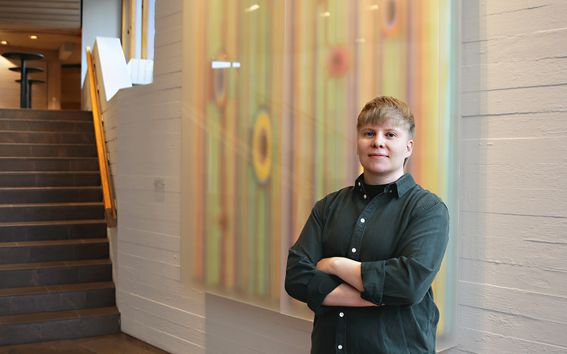Significant new funding to investigate the impacts of human actions on the water cycle worldwide

Freshwater plays a central role in regulating many life-supporting processes on Earth. Human actions, such as global warming, irrigation, land use and water infrastructure, threaten these processes by modifying the water cycle at an unprecedented rate and scale.
Researcher Miina Porkka aims to quantify human-driven water cycle changes and their impacts in a new research project, which has received nearly 1.5 million euros of funding from the European Research Council (ERC). The goal of the project is to identify ways to safeguard freshwater’s life-supporting functions in the future.
Freshwater change and its impacts are usually studied at relatively small scales, such as a single watershed or a country. However, there are clear signs that impacts of freshwater change extend far beyond the direct hydrological disturbances. Human-driven changes in the water cycle affect, for example, the carbon cycle, the Earth's energy balance and biodiversity, thereby impacting the state of the entire Earth system.
‘Despite our efforts to manage, govern and protect freshwater, our perspective is often too narrow: we tend to ignore the central role freshwater has in regulating the state of the entire Earth system,’ reminds researcher Miina Porkka from the Department of Built Environment.
‘AQUAGUARD addresses fundamental knowledge gaps at the intersection of hydrology, ecology and biogeochemistry and illustrates the water cycle as an integral part of the Earth system. The project produces new knowledge that enables a better consideration of the global perspective in water management and governance,’ Porkka sums up.
‘While it is important to understand human-driven water cycle changes and their impacts on the state of the Earth, we also aim to identify feasible and just opportunities to safeguard freshwater’s life-supporting functions in the future.’
ERC
The European Research Council (ERC) funding is awarded to leading researchers for pioneering work at the frontiers of science. Scientific excellence is the only criterion on which ERC research grants are awarded. ERC Starting Grants are designed to support very promising, early-career researchers (2–7 years since completion of PhD).
Read more news

Pengxin Wang: The internship was an adventure filled with incredible research, unforgettable experiences, and lifelong friendships.
Pengxin Wang’s AScI internship advanced AI research, fostered global friendships, and inspired his journey toward trustworthy AI solutions.
Major grant from the Kone Foundation for modern architecture research - Laura Berger's project equates building loss with biodiversity loss
Aalto University postdoctoral researcher Laura Berger and her team have been awarded a 541 400 euro grant from the Kone Foundation to study the effects of building loss on society and the environment.
14 projects selected for seed funding to boost collaboration between Aalto, KU Leuven, and University of Helsinki
The funded projects lay the groundwork for future joint research endeavors, reinforcing the strategic partnership’s goal to fostering impactful and interdisciplinary collaboration.